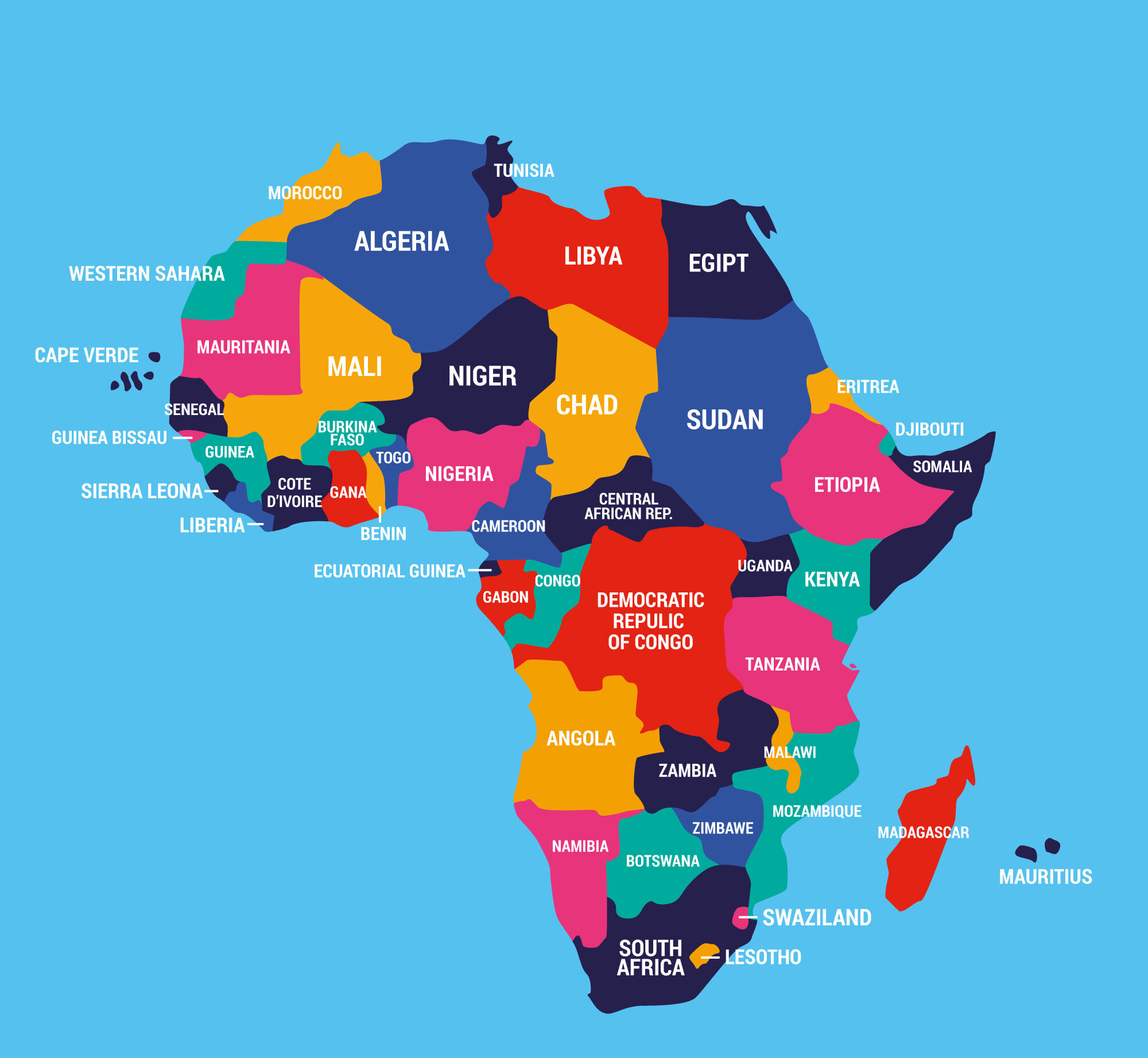How a Chinese AI startup is reshaping the technological battlefield across an entire continent
NAIROBI — In a conference room overlooking Nairobi’s gleaming business district, Harrison Li delivered a pitch that would have been unthinkable just months ago. The Huawei Cloud executive told a gathering of African tech leaders that China’s DeepSeek could match Silicon Valley’s best artificial intelligence models for a fraction of the cost—and run on cheaper hardware to boot.
“DeepSeek is so hot,” Li proclaimed, his presentation encapsulating a seismic shift underway across the African continent.
What began as a technical breakthrough has morphed into a geopolitical chess match, with China leveraging affordable AI to secure digital dominance in the world’s fastest-growing region. While Washington imposes export controls and restricts advanced chip sales, Beijing is offering African nations something more compelling: accessible technology, deployed now, at prices they can actually afford.
The Economics of Influence
The numbers tell a stark story. Olubayo Adekanmbi, who runs EqualyzAI in Lagos, had dismissed large language models as prohibitively expensive for African startups. The infrastructure demands alone seemed insurmountable for a country like Nigeria, where reliable power and internet remain luxuries rather than givens.
Then came DeepSeek. The Chinese AI model costs one Nigerian entrepreneur approximately $2,700 monthly to operate an e-learning platform—compared to $12,500 for OpenAI’s equivalent. For resource-strapped African tech founders, the choice is obvious.
“All over Africa, small teams are working to fine-tune DeepSeek for local applications,” said Vukosi Marivate, a computer science professor at the University of Pretoria. The model’s open-source design allows developers to adapt it for everything from analyzing agricultural data in Swahili to diagnosing diseases in remote clinics.
DeepSeek’s January 2025 launch of its R1 model—matching OpenAI’s ChatGPT o1 at a development cost experts estimate was a fraction of Western competitors—shattered the prevailing assumption that cutting-edge AI requires billions in investment. The announcement sent U.S. tech stocks tumbling and raised urgent questions about America’s AI supremacy.
For Africa, it represented something else: possibility.
The Infrastructure Play
China’s AI offensive extends far beyond cheap software. Through Huawei’s partnership with DeepSeek’s parent company High-Flyer, Beijing is bundling the AI model with cloud storage and computing services—creating an integrated ecosystem designed for long-term dependence.
The groundwork was laid years ago. Chinese enterprises have signed engineering contracts in Africa exceeding $700 billion over the past decade. Since the Belt and Road Initiative’s launch, 52 African countries and the African Union have inked cooperation agreements with Beijing. Huawei alone has helped build 66,000 kilometers of transmission lines and 150,000 kilometers of communications networks across the continent.
Now, AI represents the next layer of infrastructure—digital rather than physical, but no less critical to Africa’s future development.
In Kenya, Huawei has partnered with local government to deploy AI-powered traffic monitoring systems. South African fintech companies rely on Huawei cloud computing services. Six African nations have developed standalone AI strategies, while others integrate the technology into broader frameworks addressing the Fourth Industrial Revolution.
As one African tech leader noted, “In 50 years, everything is going to be African. It’s the fastest growing population in the world, the youngest population in the world. AI models need to get trained on African data.”
The Privacy Paradox
But China’s AI expansion raises troubling questions about surveillance and data security.
Unlike major Western models that comply with European transparency laws governing data collection and processing, DeepSeek’s chatbot stores user information—including chat histories, prompts, and location data—on servers in China. Under Chinese law, the government can access this data. DeepSeek’s privacy policy acknowledges this reality, advising users they can email to address privacy concerns.
Italy has banned DeepSeek entirely. Germany has requested Apple and Google remove the app from their stores. South Korea briefly pulled it after discovering the platform transferred sensitive personal data to overseas entities, including a ByteDance affiliate, without user consent.
Some African entrepreneurs share these concerns. James Ong’ang’a, CEO of Nairobi-based education technology company LoHo Learning, said data privacy influenced his decision to choose Western open-source models for child-centered learning applications.
Yet many African tech leaders dismiss the warnings as overblown or hypocritical. “Western model makers can’t convince us that China AI models are spying on us,” declared Lacina Kone, director general of Smart Africa, an organization defining the continent’s digital agenda.
Others acknowledge the risks but see no better alternative. When your monthly AI budget determines whether your startup survives or fails, abstract concerns about Beijing’s data access carry less weight than concrete realities about operational costs.
The Washington Dilemma
The U.S. government has taken notice. American AI diffusion policies explicitly restrict advanced AI exports to adversaries like China while granting exemptions to 18 allies—mostly Western nations. More than 120 other countries, many in Africa, face access limitations.
Export controls target advanced chips and AI computing hardware. The stated goal is limiting strategic competitors’ technological advancement. The practical effect may be pushing African nations toward deeper partnerships with Beijing.
“Some other countries don’t like us to grow up,” Li noted pointedly during his Nairobi presentation, alluding to American efforts to constrain China’s AI expansion.
The Biden administration’s restrictions, maintained and expanded under the Trump presidency, created an opening China has eagerly exploited. While Washington debates which chips to embargo and which allies to exempt, Beijing offers immediate solutions at accessible prices.
For African governments weighing digital development against geopolitical alignment, the choice grows increasingly stark.
The 50-Year Question
The long-term implications extend beyond quarterly budgets or quarterly earnings reports. Once African AI systems train on Chinese infrastructure, once developers build expertise on DeepSeek’s architecture, once governments integrate Huawei’s cloud services into critical systems—switching becomes exponentially harder.
Nigeria and Kenya discovered this during a dispute with a Chinese biometric systems provider. When access was suddenly restricted, systems trained on those models simply stopped working. The episode highlighted a harsh reality: dependence on foreign technology providers grants them substantial leverage over a nation’s digital future.
China has proposed a Global AI Governance Initiative positioning itself as a leader in ethical AI development and international cooperation. Through the Forum on China-Africa Cooperation, Beijing pledged to build digital technology cooperation centers, undertake 20 digital infrastructure projects, and launch digital transformation demonstrations across Africa by 2027.
The initiative promises to “bridge the AI and digital divide,” enhance capacity building, and promote exchanges on governing cross-border data flows. It advances China’s 2021 proposal for a Community with a Shared Future in Cyberspace—language that sounds collaborative but could entrench Chinese technological standards across an entire continent.
Leveling or Tilting the Playing Field?
DeepSeek’s breakthrough carries genuine promise for African innovation. By demonstrating that world-class AI can be developed affordably, it challenges narratives that only wealthy nations and massive corporations can compete in cutting-edge technology.
Sam Altman once dismissed building an AI system on a $10 million budget as “hopeless”—a comment particularly galling to resource-constrained nations. DeepSeek proved him wrong. If a Chinese research lab operating under sanctions could develop competitive AI on limited funds, African governments and institutions might achieve similar or better results with strategic investment.
The model’s adaptability to local languages and contexts offers advantages Western platforms often overlook. With over 2,000 languages spoken across Africa’s 3,000 tribes, AI systems that prioritize Swahili, Yoruba, Igbo, and Arabic over English interfaces could deliver far-reaching benefits.
Yet the question remains whether DeepSeek represents technological democratization or a more sophisticated form of dependence. Africa’s youth unemployment exceeds 20 percent, contributing to poverty, social exclusion, and instability. AI development could address these challenges—or entrench new forms of external control.
“Africans are not necessarily choosing models,” one analyst noted. “They’re not too concerned with whether they fall on the Eastern or Western side of this debate. They’re choosing what makes sense.”
But geopolitics doesn’t disappear because countries wish it would. As U.S.-China tensions escalate, African nations adopting Chinese AI infrastructure may find themselves uncomfortably positioned in a technological cold war they never asked to join.
The Verdict
DeepSeek’s expansion into Africa reveals less about Chinese generosity than about American shortsightedness. By focusing on restrictions over partnerships, on constraining adversaries over enabling allies, Washington has ceded ground in a region that will determine much of the 21st century’s trajectory.
China understood what the West apparently forgot: influence flows not from what you deny people but from what you provide them. By offering affordable AI when African startups need it most, Beijing isn’t merely selling software—it’s shaping the digital architecture on which an entire continent will build its future.
The question now is whether that future serves African interests or Chinese ones, and whether the two can ever truly align. DeepSeek may democratize access to artificial intelligence, but it also concentrates control over the data, infrastructure, and technical standards that will define Africa’s AI revolution.
Africa’s tech entrepreneurs face an impossible choice: pay prices they cannot afford for Western AI systems whose developers largely ignore their needs, or embrace Chinese alternatives that offer capability and accessibility alongside uncomfortable questions about sovereignty and surveillance.
They’re choosing affordability. History will judge whether that choice leads to digital independence or a new form of technological colonialism—one built not on railways and resource extraction, but on algorithms, cloud servers, and the silent flow of data from African devices to Chinese servers, beyond the reach of local laws or democratic accountability.
In Nairobi’s conference rooms and Lagos’s startup hubs, the AI revolution has arrived. Whether it liberates or entraps African innovation remains an open question. What’s certain is that China arrived first with solutions African entrepreneurs could actually use—and that timing may prove more decisive than any technical specification or privacy policy could ever be.




